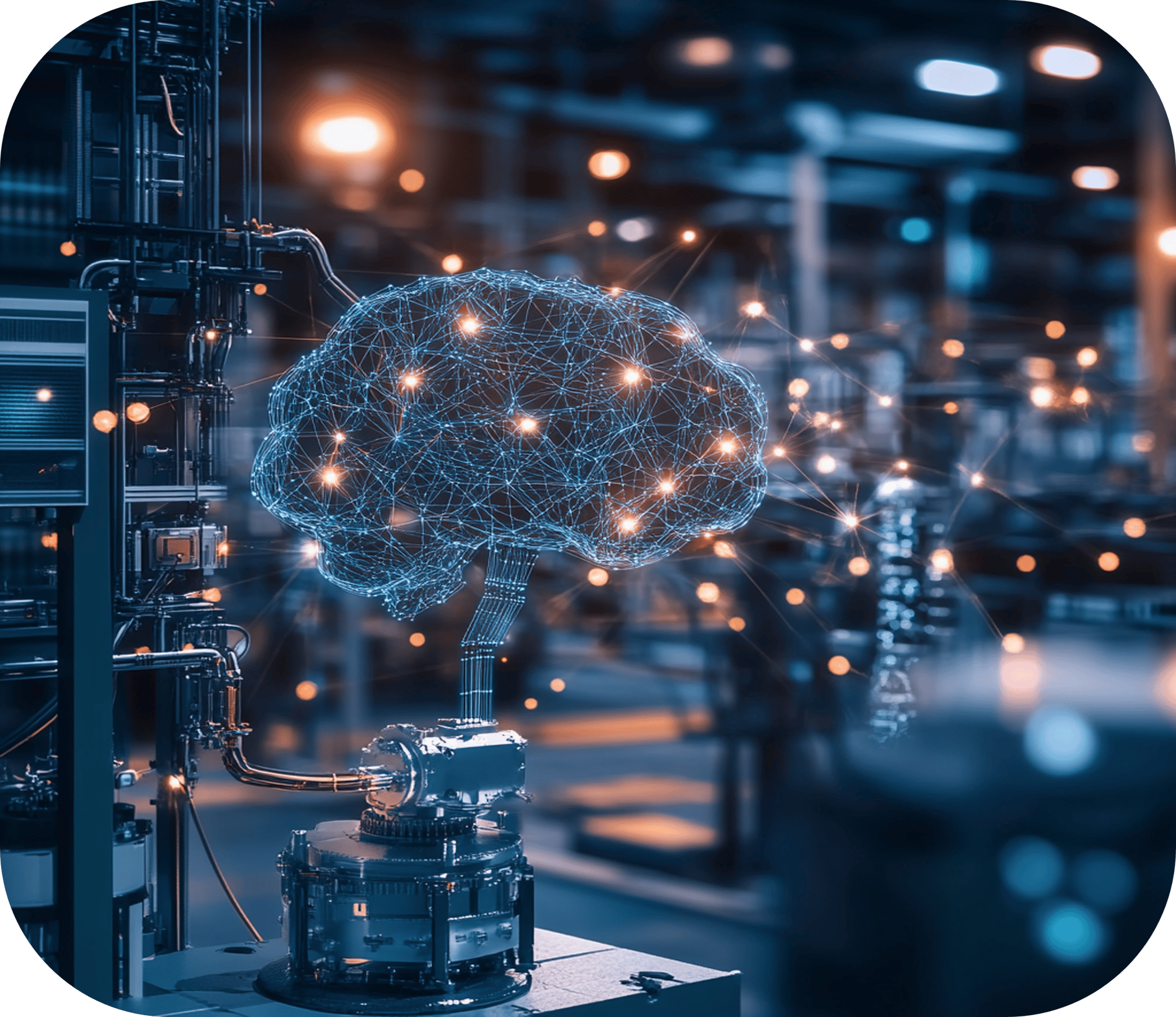Productivity from Artificial Intelligence
AI integrated with processes and data unlocks massive productivity gains. We guide our clients their transformation journey—on vision, technology, and governance levels.
An organization's AI capability is built on four fundamental pillars: the right tools (e.g., models and frameworks), high-quality data, optimized processes for AI utilization, and cultural factors—AI governance, employee expertise, and a culture of experimentation. Implementing AI is not just a technology project; it is a business transformation. At the same time, it is also a governance exercise—AI usage must be planned, measured, and monitored effectively.
Artifical Intelligence: GenAI and ML
We build AI solutions that address the core development needs of your business. Whether it’s enhancing customer service with a chatbot, implementing computer vision solutions for quality control on production lines, or developing a statistical model to optimize chemical processes — we deliver, using both Azure AI tools and on-premises solutions for environments like factories.
At the heart of AI projects is a deep understanding and modeling of business needs. Whether it involves Copilot extensions, generative AI solutions for content creation, or predicting the operation of an electricity grid, understanding the user, planning for use cases, and identifying potential error sources are critical aspects.
Most AI pilots fail to transition to production. We counter this trend by thoroughly understanding the need to ensure that the pilot doesn’t end up being just a technical exercise.
The Future of AI
We see that during 2025-2030, AI will gradually become more autonomous. We refer to this transformation as enterprise intelligence. With this evolution, we can confidently rely on advanced machine learning models and generative AI for overall business analysis, guidance, and support. AI, for example, could detect emerging issues within business processes, anticipate employee fatigue, or identify a weakening customer relationship — and even recommend or initiate corrective measures in advance.
Achieving this high level of trust requires preparation: high-quality data, AI-ready process applications, robust AI governance — and, of course, further technological development.
We help our clients prepare and adapt for this transformation.

Towards Enterprise Intelligence
How will AI change business operations? How do you take the first steps on the journey toward intelligent business? We have gathered insights and practical experiences on successfully implementing AI—explore and discover the intelligent business model for your organization!
Top of Mind for us
Agent Architectures
We are gradually moving from first-generation GenAI solutions towards agent-based AI, where semi-autonomous programmed AI can accept tasks from users and provide support in the background.
At the same time, agents also create a sort of microservices architecture for GenAI solutions: if one AI service cannot meet the user's needs, it can call on another agent for assistance. We anticipate that this will enable significantly stronger AI architectures by 2025.
IT/OT Convergence and AI
The convergence of cloud-based IT and OT (operational technology), which controls the physical world, enables AI to guide business operations at a much deeper level than before.
These two realms have come significantly closer together in recent times, and it is exciting to see long-standing digital dreams come to life: digital twins of factories, real-time visibility into production lines, sharing insights across all production environments... The possibilities are many. AI is a heavy consumer of information, and the IT/OT integration is a boon for it.
AI Center of Excellence
As AI adoption progresses beyond pilots, it is crucial to ensure that its use is guided and supported correctly: maintaining compliance and responsibility while preserving the pace of innovation.
We believe that an organization's AI expertise should be centralized in an AI Center of Excellence — a single hub that both supports and oversees projects.
Reliability and Performance of GenAI Models
The first wave of GenAI hype has brought an impressive influx of funding to the market, fueling rapid advancements in the foundational research of AI models.
As AI users, we reap the benefits: models are becoming more efficient in terms of performance and cost, and it is increasingly easier to build layers on top of them that reduce hallucinations and interpretation errors.
These changes lead to an overall improvement in AI applications, similar to how television picture quality or mobile internet speed evolves. There’s no need to carry out fundamental development independently — all applications benefit from these advancements.

Our AI Ways of Working
Clarifying the need
We use suitable methods for each unique situation to find the right ways of building AI that truly has an impact on business. We go to the field, interview and experiment. The end result? A clear plan that accounts for the opportunities of AI, metrics and risks.
We implement the solution
A hypothesis becomes reality when it is tied to the real world and real data. At its' simplest we integrate the clients' solution to their latest language model. In the most complex cases, we train custom models, for example, to predict physical phenomena.
We support the end result
In most cases the solution works by itself without any supporting maintenance. However, sometimes the environment and development may require support and monitoring. We provide support for everything from minor further development to 24/7 maintenance and AI Center of Excellence services.
